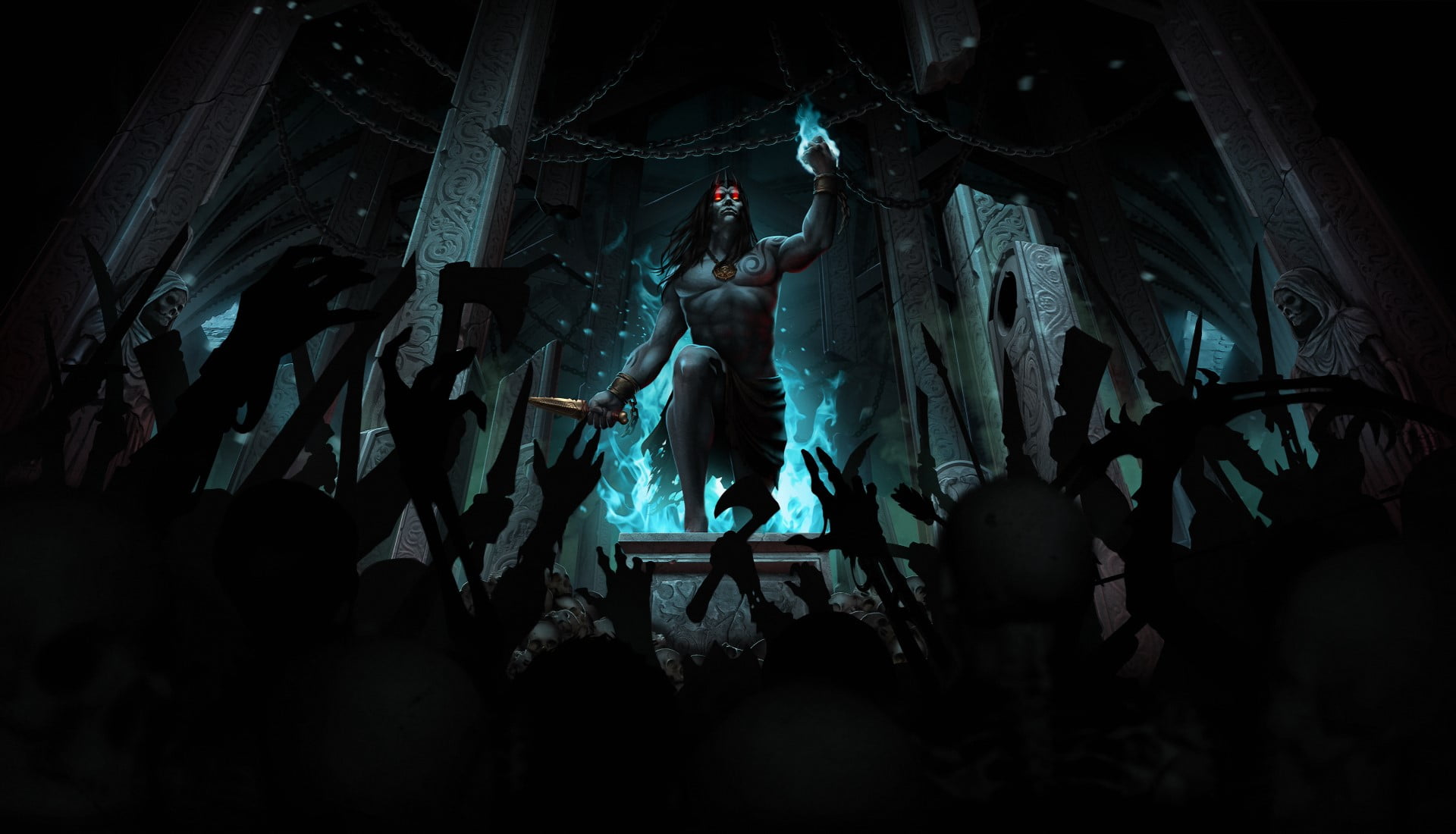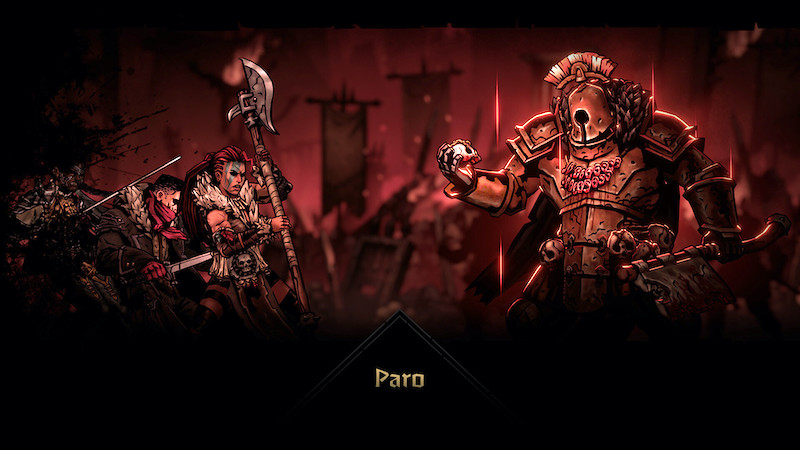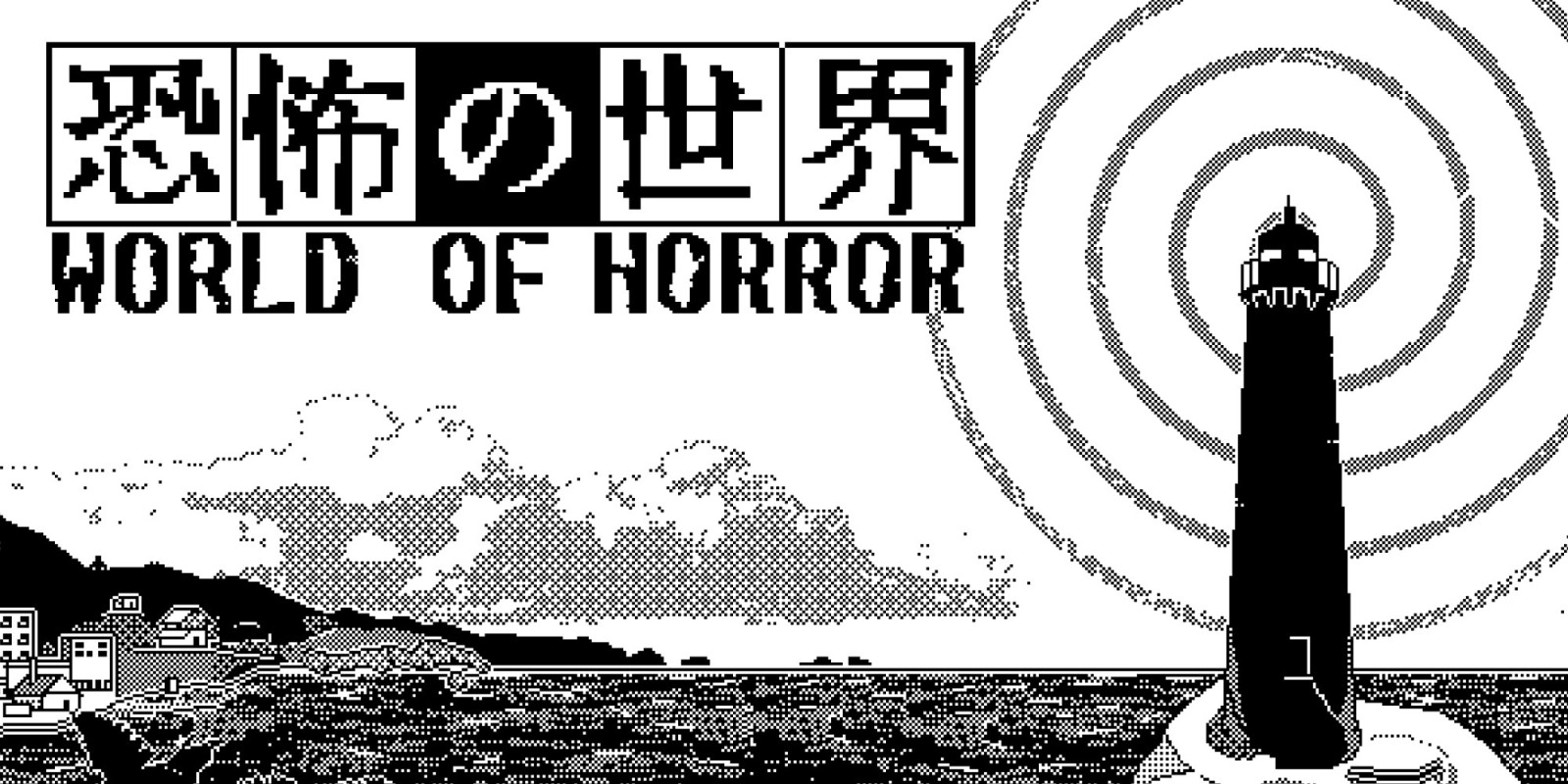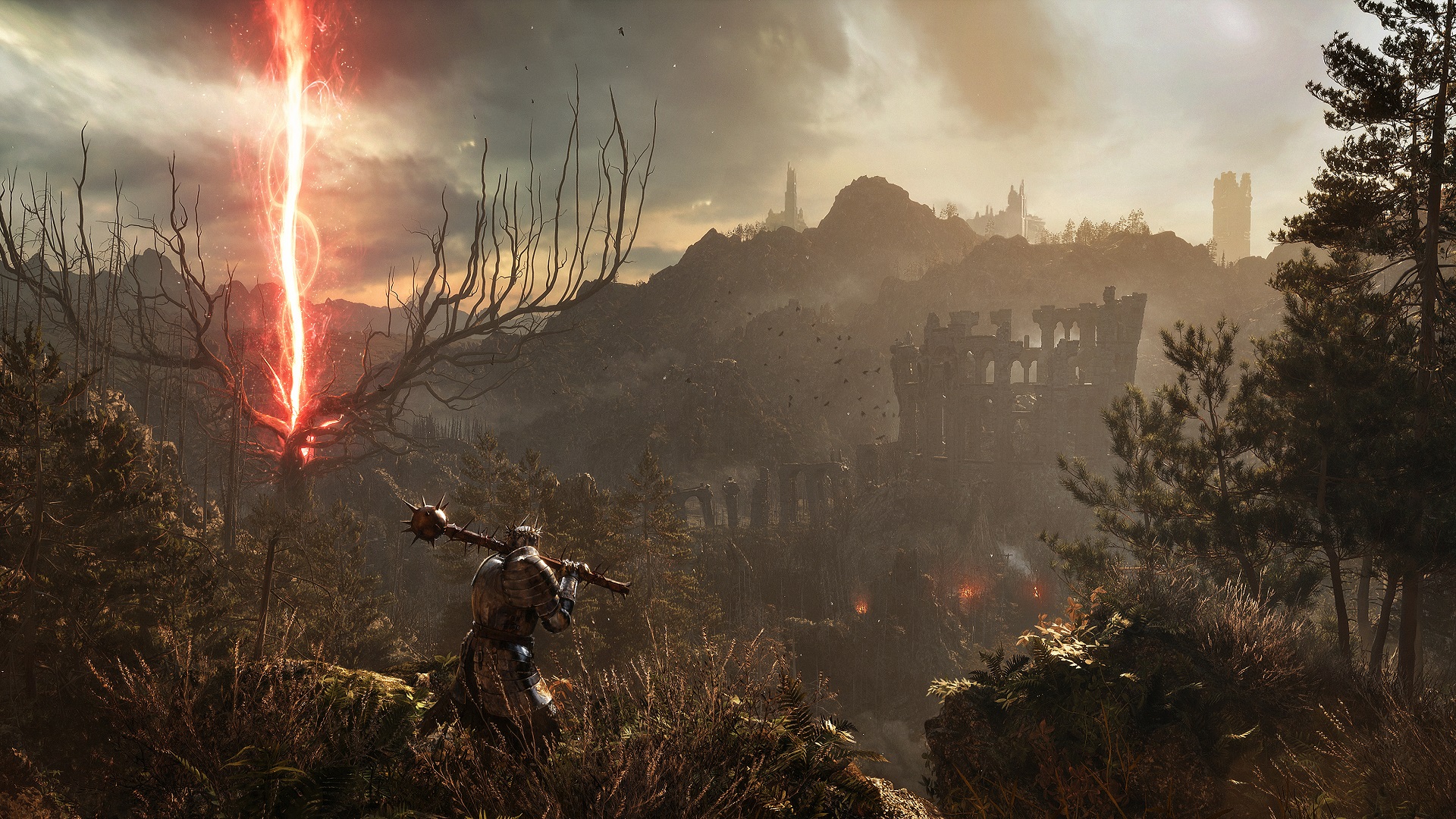
Iratus: Lord of the Dead Early Access Review- The Whimsical Tale of a Man and his Bones
Developed by Unfrozen
Published by Daedalic Entertainment
Available on PC through Steam
Not yet rated by ESRB
MSRP $24.99
For severe alcohol poisoning, take a shot every time I have to say “Darkest Dungeon” during this review because this is really the only lens we can view this game through. Iratus: Lord of the Dead is an unabashed clone of Darkest Dungeon, the twist being that you now play as the dungeon. For the record, when I say this is a clone of Darkest Dungeon, I don’t mean that as a bad thing. Darkest Dungeon is one of my favorite games, and I will gladly take any spinoff and inject it straight into my veins. While it is far from complete, with each update Iratus: Lord of the Dead inches closer and closer to being a fantastic homage to Darkest Dungeon. On top of that, there hasn’t been a good necromancer game since Diablo 2. To me, this is a winning combination.
In Iratus: Lord of the Dead, you take the role of Iratus, a humble bone collector who has been awakened from his eternal imprisonment, now free to resume his conquest of the living by creating an army of undead. I cannot stress enough how much this game is bizzaro Darkest Dungeon. Rather than sending in heroes to scout a spooky labyrinth to kill(?) skeletons and bring back loot, in Iratus you send skeletons to kill any heroes you encounter in your spooky labyrinth and rend their corpses into useful supplies. You take the bones and bring them back to your undead hamlet, and create new spooks and creeps to deploy in the next encounter.

For those who haven’t played Darkest Dungeon (and you really should), the gameplay goes as follows. You pick a squad of four characters, each with their own unique skills, and guide them through their quest. As you explore the dungeon ahead of you, you run into either a box that contains loot or enemies, who coincidentally also contain loot. Combat is simple turn-based fighting. Each round the characters attack in descending order of who has the highest I’m-going-to-attack-first stat. Iratus: Lord of the Dead takes the depth of the combat one tiny baby inch step forward by adding in spells and a mana bar, which can come in handy but often will be ignored.
If you’ve ever played Dungeon Keeper, Overlord, or you just liked to bully your little brother, this game is aimed at you. I think the strongest part of this game is the abandonment of a horror atmosphere. Iratus: Lord of the Dead instead chooses to go into caricature. Iratus constantly mocks his foes. You initially fight malnourished prisoners and clumsy inexperienced adventurers. One of your units is a big boob zombie who Iratus admits he created as a horny young necromancer lad. This is a fundamentally silly game, and if I could give the developers one piece of advice, it would be to lean into the ridiculousness even further.
There are still a few glaring issues. Perhaps it’s due to the necrosis of my own brain, but I couldn’t figure out how to create any meaningful synergy between the fighters I used. In Darkest Dungeon, each character had a clear cut role of a tank, healer, fighter, or something in between. The heroes skills complemented each other well. Iratus: Lord of the Dead is lacking a lot in this regard. Buffing your allies or debuffing your enemies seems less effective than doing the same two basic attacks turn after turn. In this sense, strategy is stymied and often battles are won simply by out-tanking the enemies.

Another thing I take issue with in Iratus: Lord of the Dead is the selection of monsters you can create. There is a huge variety of interesting monsters, ranging from zombies carrying massive cannons, to vengeful blood ghosts, to five-skeletons-taped-together, to Sauron. And yet they’re all about the same, give or take. There isn’t a whole lot of difference between casting crazy bones for 50 damage, or monster mash for 40 damage plus five bleed for the next two turns. Despite the variety, there’s not a big difference between the classes I unlocked. Each had a similar damage output. The team composition seemed completely irrelevant. I may as well have sent four of the same characters into battles.
On top of ineffectual team composition, as it stands the stress mechanics in Iratus: Lord of the Dead are not even worth using. Whereas in Darkest Dungeon you need to manage stress so as to not lose control of your own characters, there doesn’t seem to be a point to inflicting stress upon your enemies. In theory, they would go insane and attack each other or skip a turn. In practice they either aren’t meaningfully affected or in some cases, get an attack buff or an extra turn. Right away, the uselessness of stress strips away almost a third of the combat skills as well as some specialized undead units entirely. And since it could take 8-10 hours before you begin to unlock stronger fighters, you will be stuck with just a few different undead to carry you through the game.
Much like Darkest Dungeon, Iratus: Lord of the Dead emphasizes that all your skeleton warriors are disposable. I like this idea, but as it stands the game takes this idea a bit too far. Obviously, as a necromancer, you can simply staple some limbs together and have a new undead soldier in a jiffy, but the gameplay really suffers for it. In some cases this means the end for your save file. With no dedicated healers, you can only keep and heal units that survive(?) the battle. If your best units are unlucky enough to take a crit or two, there’s no course of action to save them. For some reason, the ‘retreat’ button sacrifices all the units in the battle. So it’s effectively just a way to speed up your team being killed(?) without even getting their bones refunded.

And finally, there is no way to go back and do easier missions to level up new combatants. You can only keep moving forward, and if you’re unlucky enough to get stuck at a boss fight without enough well-equipped minions, there’s nothing that can be done. You lose your squad, go back home and 3D print some more skeletons, but without a way to level up, they will die(?) again until you run out of bones. If Iratus: Lord of the Dead fancies itself a roguelike, permadeath and failure are not necessarily bad. But when the first level of the dungeon can take almost an hour before reaching the boss, having to start over from the beginning is a massive chore.
Beyond that, my complaints with Iratus: Lord of the Dead are trivial. Some of the animations look a little jerky, some of the loot you find is not that interesting (gorsh, +2% extra luck if I’m in position 4?), and the lore is pretty uninspired. These are hardly worth mentioning, especially considering how great the rest of it is. The art is fantastic, the music fits well, and hearing the voice of the Great Necromancer Lord Iratus, First of his Name, King of the Dead, Immortal Being of the Abyss, cry out that an enemy shit his pants as he died hammers home the comically evil premise. Darkest Dungeon is a game about despair and hopelessness in the face of eldritch entropy. Iratus is a game about Skeletor fighting He-Man and the Masters of the Universe.
Thankfully, Iratus: Lord of the Dead is still a work in progress. When I first started, I was doing so poorly that I was worried that the jig was up and that my secret would finally come out that I am actually three desperate Tunesian POWs who are pretending to be a video game reviewer in order to farm bitcoin under the threat of execution. But each update brings this game closer and closer to the masterpiece deep down within. The developers were making the game better faster than I could review it. Since the game is now out in early access, I am more than confident the developers will have fixed most of the issues I mentioned by the time you read this review. This one has the potential to be fantastic, and if you’re looking for a spin on the Darkest Dungeon formula, you’ve found it.
Summary
Itarus: Lord of the Dead is a great take on the familiar Darkest Dungeon formula. With a little more polish, it could be great. Frequent updates are a great sign of things to come.
Overall
3.5-
Game




